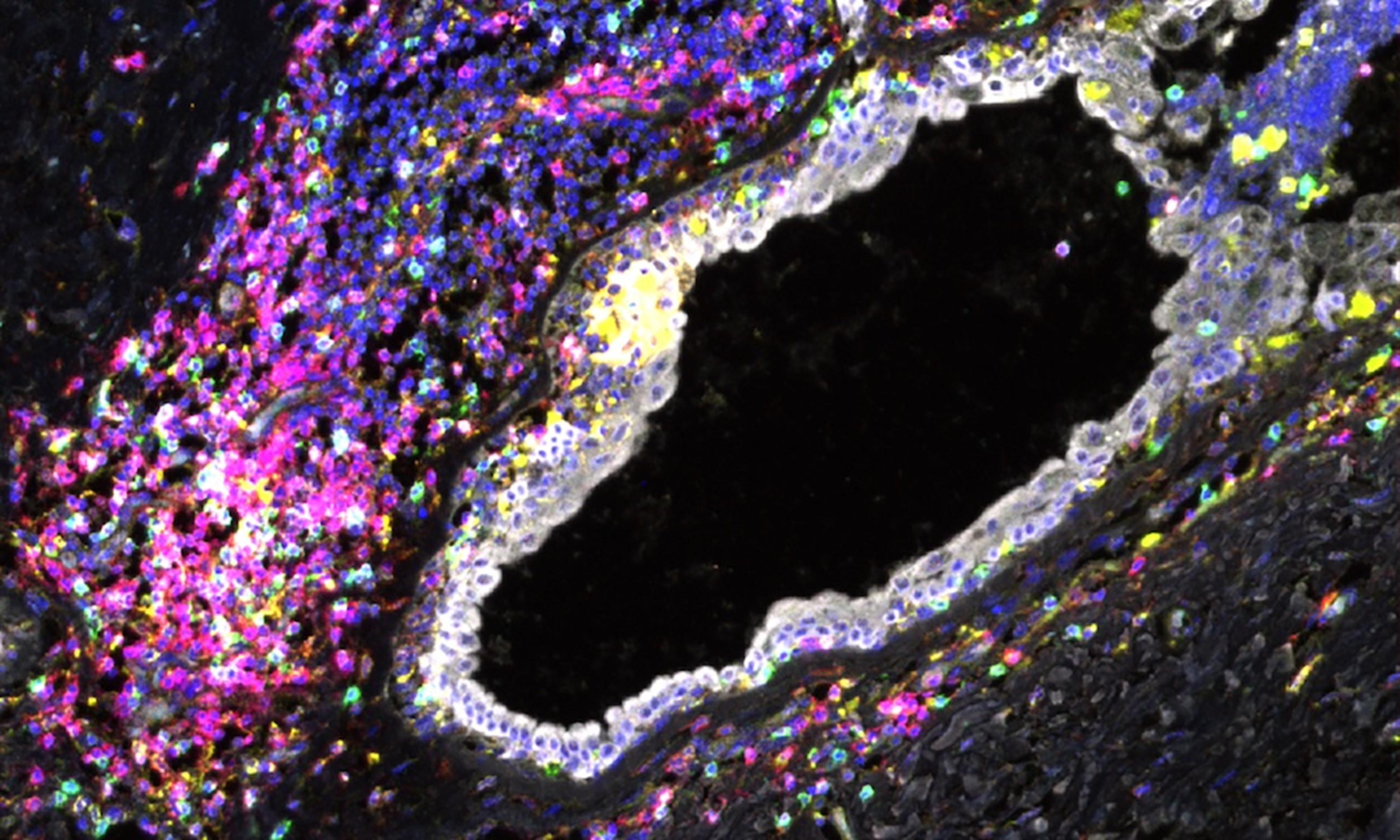
Submitted by D.P. Juan on Thu, 28/03/2024 - 10:14
The Khaled Group and collaborators at the University of Cambridge have created the world’s largest catalogue of human breast cells, which has revealed early cell changes in healthy carriers of BRCA1 and BRCA2 gene mutations.
Everyone has BRCA1 and BRCA2 genes, but mutations in these genes - which can be inherited - increase the risk of breast and ovarian cancer.
The study found that the immune cells in breast tissue of healthy women carrying BRCA1 or BRCA2 gene mutations show signs of malfunction known as ‘exhaustion’. This suggests that the immune cells can’t clear out damaged breast cells, which can eventually develop into breast cancer.
This is the first time that ‘exhausted’ immune cells have been reported in non-cancerous breast tissues at such scale - normally these cells are only found in late-stage tumours.
You can read more here: https://www.cam.ac.uk/research/news/exhausted-immune-cells-in-healthy-women-could-be-target-for-breast-cancer-prevention
